Peggy Munson marks the one year anniversary of her near death during the Ice Storm of ’08
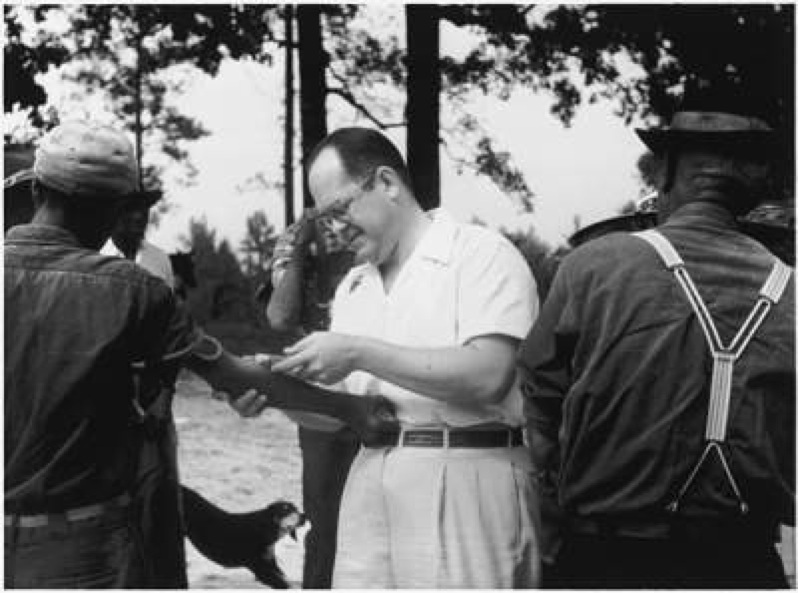
One patient who spoke at the Chronic Fatigue Syndrome Advisory Committee (CFSAC) in late October compared the plight of ME/CFS patients to the Tuskegee Syphilis Experiment. It is, after all, perfectly legal to deprive ME/CFS patients of care while we suffer and die, while the FDA postpones the one drug close to approval for ME/CFS for another ten years. It is legal for our friends and families and society to leave us for dead. There have been, arguably, legal murders against ME/CFS patients who were kept from getting the help they needed, from being forced to exercise until they died from it, or just bullied into suicide.
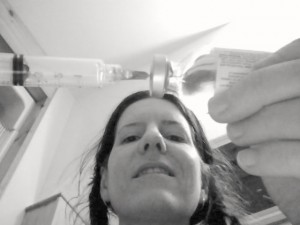 This past year, I was abandoned and left to die a terrible death from ME/CFS unable to speak, move, bathe, or even breathe on my own, with barely any care, dirty and dying with ants crawling on me, desperately begging for help using a TTY phone when I scarcely had the energy to type with the keys. I could not tolerate any stimulation including sound, vibration, phone, friends, TV, radio, music, touch (stimulation would induce seizures, muscle fasciculations, increased shortness of breath, drops in blood pressure, and other neurological symptoms that grew increasingly severe). I was generally too ill to reach for things at the end of my bed and eating was a chore because it took strength I didn’t have, to chew, and I would be incredibly winded from that effort or from even turning my head to the side to shovel the food in. The conditions were atrocious. At night I would wake up with drenching night sweats but be too weak to pull the tank top off of my head and had to stay in the soaking sheets. I was unable to turn over to prevent bedsores. I communicated almost entirely by written notes.
This past year, I was abandoned and left to die a terrible death from ME/CFS unable to speak, move, bathe, or even breathe on my own, with barely any care, dirty and dying with ants crawling on me, desperately begging for help using a TTY phone when I scarcely had the energy to type with the keys. I could not tolerate any stimulation including sound, vibration, phone, friends, TV, radio, music, touch (stimulation would induce seizures, muscle fasciculations, increased shortness of breath, drops in blood pressure, and other neurological symptoms that grew increasingly severe). I was generally too ill to reach for things at the end of my bed and eating was a chore because it took strength I didn’t have, to chew, and I would be incredibly winded from that effort or from even turning my head to the side to shovel the food in. The conditions were atrocious. At night I would wake up with drenching night sweats but be too weak to pull the tank top off of my head and had to stay in the soaking sheets. I was unable to turn over to prevent bedsores. I communicated almost entirely by written notes.
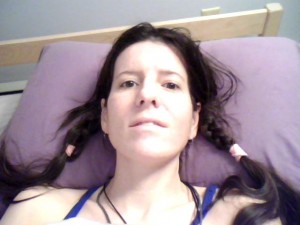 I had no way of getting the care I needed since I got sick at age 23 — a legal adult — and yet I only was awarded a minimal amount (at this point it has been raised to almost $800 a month) in disability benefits due to my age so I had no means to pay for extra care beyond what the state would give me since my family only gives me enough additional allowance for living expenses, and because of this I was going to die. My family temporarily paid for additional care and then abruptly cut it off when I was in some kind of respiratory failure, leaving me alone in the house for 17.5 hours a day in the middle of my bedroom in the middle of the woods, with no ability to help myself except to drag my body five feet to the bathroom and collapse on the bathroom floor (crawling) and then to drag myself back. I changed my underwear once every four or five days, too weak to change it more often.
I had no way of getting the care I needed since I got sick at age 23 — a legal adult — and yet I only was awarded a minimal amount (at this point it has been raised to almost $800 a month) in disability benefits due to my age so I had no means to pay for extra care beyond what the state would give me since my family only gives me enough additional allowance for living expenses, and because of this I was going to die. My family temporarily paid for additional care and then abruptly cut it off when I was in some kind of respiratory failure, leaving me alone in the house for 17.5 hours a day in the middle of my bedroom in the middle of the woods, with no ability to help myself except to drag my body five feet to the bathroom and collapse on the bathroom floor (crawling) and then to drag myself back. I changed my underwear once every four or five days, too weak to change it more often.
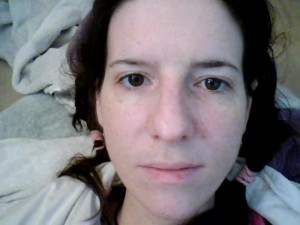 People are sent to jail for leaving their relatives or caregiving consumers or partners to die the death I almost died, but only if they have accepted being caregivers in the first place. It’s an astonishing legal loophole. Cases where relatives did provide care, often for years, and yet the care was not sufficient and the relative died in horrible conditions (bugs, bedsores, etc.), are brought to court and prosecuted. However, if a family just refuses to give their disabled relative care, that disabled person has no recourse. Abandonment of a vulnerable adult (disabled person) is a crime, but not if you completely abandon that adult, not if you never provided care to begin with, not if you provided that person with an abusive or neglectful caregiver (though that abusive caregiver might be prosecuted). Society frowns upon overt abuse but not neglect, and thus many people are orphaned without care. A woman in the UK is on trial right now after taking care of her daughter with ME for 17 years. The daughter died of a morphine overdose in what was said to be a mercy killing. Of course, if the mother had abandoned her daughter outright, and her daughter died 10 years sooner because of that, it would not have been a crime. But she couldn’t do that because she was trapped into a caregiving role: her daughter was a minor when she got sick. Had she been barely legal, all bets would be off.
People are sent to jail for leaving their relatives or caregiving consumers or partners to die the death I almost died, but only if they have accepted being caregivers in the first place. It’s an astonishing legal loophole. Cases where relatives did provide care, often for years, and yet the care was not sufficient and the relative died in horrible conditions (bugs, bedsores, etc.), are brought to court and prosecuted. However, if a family just refuses to give their disabled relative care, that disabled person has no recourse. Abandonment of a vulnerable adult (disabled person) is a crime, but not if you completely abandon that adult, not if you never provided care to begin with, not if you provided that person with an abusive or neglectful caregiver (though that abusive caregiver might be prosecuted). Society frowns upon overt abuse but not neglect, and thus many people are orphaned without care. A woman in the UK is on trial right now after taking care of her daughter with ME for 17 years. The daughter died of a morphine overdose in what was said to be a mercy killing. Of course, if the mother had abandoned her daughter outright, and her daughter died 10 years sooner because of that, it would not have been a crime. But she couldn’t do that because she was trapped into a caregiving role: her daughter was a minor when she got sick. Had she been barely legal, all bets would be off.
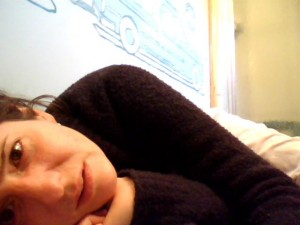 I learned one place where families like mine — and our society — cultivated this mentality when I read about the largest longitudinal study on divorce by Judith Wallerstein. As it turns out, divorced families do not treat their vulnerable members the same, including those with disabilities. They tend to have a belief system that once someone reaches the arbitrary age of adulthood, he/she should be fully independent in all ways, whether this is realistic or not. Families think of caregiving as a performance for society. “‘I did all that was required,’ was the recurrent theme” about divorced parents raising their children, writes Wallerstein, an interesting contrast to doing all that was needed. Additionally, children of divorce rarely allow their parents to come live with them and rarely provide them with hands-on care, rather opting for financial support only. Wallerstein comments that these parents are not prepared for “the sense of abandonment and loss” they are about to feel by not getting care as they age. The way divorce fractures a family structure could certainly be expanded in some ways to a social structure. But it’s obviously not completely to blame. Nearly half of those who died in Hurricane Katrina were 75 or older and one can only wonder how many of them were not given the physical means to escape, how many were abandoned to die in their homes. There is something terribly wrong with this but after what I’ve gone through I have begun to wonder why anyone blew the whistle on Tuskegee at all, when so many medical atrocities go on in this country every day.
I learned one place where families like mine — and our society — cultivated this mentality when I read about the largest longitudinal study on divorce by Judith Wallerstein. As it turns out, divorced families do not treat their vulnerable members the same, including those with disabilities. They tend to have a belief system that once someone reaches the arbitrary age of adulthood, he/she should be fully independent in all ways, whether this is realistic or not. Families think of caregiving as a performance for society. “‘I did all that was required,’ was the recurrent theme” about divorced parents raising their children, writes Wallerstein, an interesting contrast to doing all that was needed. Additionally, children of divorce rarely allow their parents to come live with them and rarely provide them with hands-on care, rather opting for financial support only. Wallerstein comments that these parents are not prepared for “the sense of abandonment and loss” they are about to feel by not getting care as they age. The way divorce fractures a family structure could certainly be expanded in some ways to a social structure. But it’s obviously not completely to blame. Nearly half of those who died in Hurricane Katrina were 75 or older and one can only wonder how many of them were not given the physical means to escape, how many were abandoned to die in their homes. There is something terribly wrong with this but after what I’ve gone through I have begun to wonder why anyone blew the whistle on Tuskegee at all, when so many medical atrocities go on in this country every day.
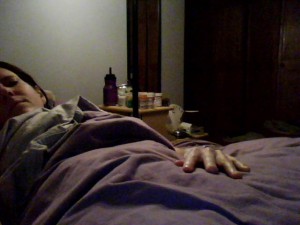 When Mike Dessin said in his presentation to the CFSAC, “I was left for dead. I was withering away in a dark room. I was left to die.” I know viscerally what he is talking about because I have been in that same room. It’s an experience of imprisonment and torture and terror that is hard to describe, and knowing that people have chosen that for you is unimaginably traumatic. Got PTSD? You bet! But will I ever be well enough to talk on the phone to a therapist and process those emotions? I don’t know at this point. I do know that a recent article in the New Yorker (“Hellhole” by Atul Gawande) decided that solitary confinement is a form of torture, and that many people I loved abandoned me in the same level of confinement, with less certainty than a prisoner that my evening meal would be delivered. (From the article: “It’s an awful thing, solitary,” John McCain wrote of his five and a half years as a prisoner of war in Vietnam—more than two years of it spent in isolation in a fifteen-by-fifteen-foot cell, unable to communicate with other P.O.W.s except by tap code, secreted notes, or by speaking into an enamel cup pressed against the wall. “It crushes your spirit and weakens your resistance more effectively than any other form of mistreatment.”)
When Mike Dessin said in his presentation to the CFSAC, “I was left for dead. I was withering away in a dark room. I was left to die.” I know viscerally what he is talking about because I have been in that same room. It’s an experience of imprisonment and torture and terror that is hard to describe, and knowing that people have chosen that for you is unimaginably traumatic. Got PTSD? You bet! But will I ever be well enough to talk on the phone to a therapist and process those emotions? I don’t know at this point. I do know that a recent article in the New Yorker (“Hellhole” by Atul Gawande) decided that solitary confinement is a form of torture, and that many people I loved abandoned me in the same level of confinement, with less certainty than a prisoner that my evening meal would be delivered. (From the article: “It’s an awful thing, solitary,” John McCain wrote of his five and a half years as a prisoner of war in Vietnam—more than two years of it spent in isolation in a fifteen-by-fifteen-foot cell, unable to communicate with other P.O.W.s except by tap code, secreted notes, or by speaking into an enamel cup pressed against the wall. “It crushes your spirit and weakens your resistance more effectively than any other form of mistreatment.”)
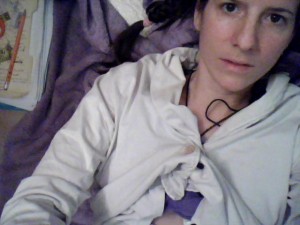 Those of us who have been there talk about it amongst ourselves, but not in public because we have effectively disappeared. I told my friend who is now too sick to use computers how I finally had the strength to call a dial-a-prayer and listen, and the prayer was about how Jesus was tortured because he was right. “We’re right,” I told her. “You see? People torture what is right.” She wrote back, “He was up there bodily suffering for what — TWO HOURS? Was it 2 days? That just puts me in total self-righteous mode, because that is nothing compared to the unimaginable horror that we’ve been forced to endure.” Perhaps the comparison someone once made of our lives being like Job’s life was more apt: Job suffered the devil’s test and was tortured by chronic physical ills, losing everything he loved. At that point, he cursed his very life, and cursed the friends who abandoned him for his ills. I find this passage so poignant because it seems to speak to a universal truth: people abandon the sick, even in the Bible:
Those of us who have been there talk about it amongst ourselves, but not in public because we have effectively disappeared. I told my friend who is now too sick to use computers how I finally had the strength to call a dial-a-prayer and listen, and the prayer was about how Jesus was tortured because he was right. “We’re right,” I told her. “You see? People torture what is right.” She wrote back, “He was up there bodily suffering for what — TWO HOURS? Was it 2 days? That just puts me in total self-righteous mode, because that is nothing compared to the unimaginable horror that we’ve been forced to endure.” Perhaps the comparison someone once made of our lives being like Job’s life was more apt: Job suffered the devil’s test and was tortured by chronic physical ills, losing everything he loved. At that point, he cursed his very life, and cursed the friends who abandoned him for his ills. I find this passage so poignant because it seems to speak to a universal truth: people abandon the sick, even in the Bible:
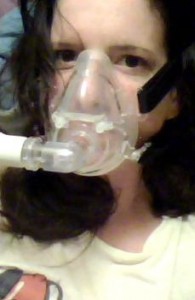 Is there no one who will support me?
Is there no one who will support me?
Has all resource been driven so far away?
Loyalty is due a sick friend,
Even if he renounce the fear of the Almighty.
My brothers are treacherous as a desert stream;
They are like a wadi that overflows its banks,
Running dark with ice
And swollen with the snow melt.
But comes the heat, they vanish,
A new season and they fade.
I told another friend to watch Survivor and think about how pathetic they are compared to us. “Yea, no kidding,” he wrote. “When I see shows like that and miracle stories, I say, if they only knew!”
As Dante sees it, the worst tier of hell is a place (the 9th circle) where people are frozen in ice, unable to move or speak, isolated from one another. I was there, and my version started with freezing rain.
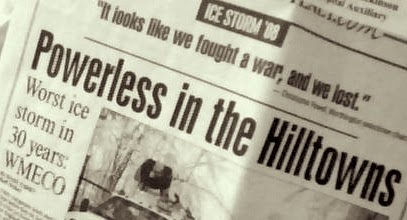
It started just over a year ago, when I stopped being able to see the future. I can’t explain this except to say that futurity was lost from my brain functions, and imagining a week ahead became impossible. 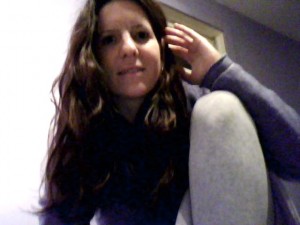 It was an odd, eerie feeling, accompanied by strange neurological sensations such as lighting bolt-like jolts through my torso and heart and an overwhelming, spreading weakness through my body. There was so much wrong with me that I couldn’t go all Dr. House on just a few new symptoms, and just struggled to hold on to my waning life. My 40th birthday arrived on December 10. I had asked a bunch of long-lost friends to leave me voicemail messages, and it was so amazing to get them. I was weakly lying on one side retrieving the messages, celebrating my birthday, and I briefly had the thought “this is the kind of thing people do before they die.”
It was an odd, eerie feeling, accompanied by strange neurological sensations such as lighting bolt-like jolts through my torso and heart and an overwhelming, spreading weakness through my body. There was so much wrong with me that I couldn’t go all Dr. House on just a few new symptoms, and just struggled to hold on to my waning life. My 40th birthday arrived on December 10. I had asked a bunch of long-lost friends to leave me voicemail messages, and it was so amazing to get them. I was weakly lying on one side retrieving the messages, celebrating my birthday, and I briefly had the thought “this is the kind of thing people do before they die.” 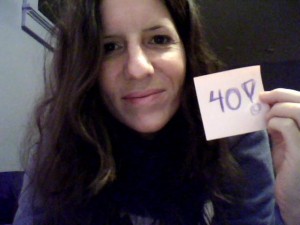 The next day, the Ice Storm came. It was the worst natural disaster here in 30 years. Large branches and even whole trees littered the roads and people’s yards. I did not know an Ice Storm could act like a hurricane, like a tornado. Due to my chemical sensitivities, I can’t have petroleum-fueled heat or use a wood stove, and thus my heat, lights, and water source (the well pump) were knocked out. My power was out for 3 days and I could not acquire a generator until a day after my house had plunged into freezing temperatures and I was starting to evidence hypothermia-like symptoms. Once I got to the hospital, the Hampshire Gazette was on my bedside table with a quote from some guy: “It looks like we fought a war, and we lost.”
The next day, the Ice Storm came. It was the worst natural disaster here in 30 years. Large branches and even whole trees littered the roads and people’s yards. I did not know an Ice Storm could act like a hurricane, like a tornado. Due to my chemical sensitivities, I can’t have petroleum-fueled heat or use a wood stove, and thus my heat, lights, and water source (the well pump) were knocked out. My power was out for 3 days and I could not acquire a generator until a day after my house had plunged into freezing temperatures and I was starting to evidence hypothermia-like symptoms. Once I got to the hospital, the Hampshire Gazette was on my bedside table with a quote from some guy: “It looks like we fought a war, and we lost.”
That guy surely had no idea there were POWs, that I was one of them. I was hospitalized for 4 1/2 days after the ice storm — something also almost guaranteed to be lethal to someone with ME/CFS plus multiple chemical sensitivities. As ME writer Jodi Bassett states, “It is very common for severely affected patients to spend 2 months, 6 months, 12 months or even YEARS or longer recovering from a hospital trip. For example, some patients have not regained their previous very low-level of health 2 or 4 years after a trip to hospital. Some never do recover, and for some patients the overexertion is so severe as to be fatal.” Dr. William Rea has written “chemically sensitive patients can — and do — die in hospitals from exposure to chemicals but it is always blamed on organ failure or recurrent infection,” and ME/CFS patient Sophia Mirza died after a serious decline prompted by a hospital stay. The stimulation of people coming in and out of my room, and the chemicals in the hospital and personal care products used by the staff, did me in. When I returned home from the hospital, I went into a state of collapse so horrific nobody thought I would survive. 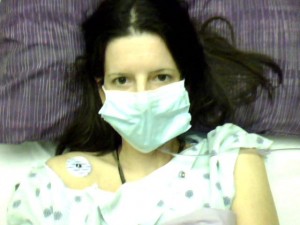 For most of this year I lived in worse conditions than a POW or someone on Death Row: alone 24 hours a day except for 2 minute breaks when aides dropped off food, begging for more care as I was dying, unable to speak out loud or move or bathe and ultimately unable to breathe on my own. I could not get enough care to save my own life and I did not even have the strength to cross the room for months, let alone find, hire, and train the personal care attendants I needed to bring me what I needed from downstairs. Because of this, new PCAs often came into my house with no idea where anything was or what to do, and we could only communicate by written notes if they indeed found their way to my bedside. A friend of mine tried, from another country, to hire, interview, and organize PCAs over the phone. They kept quitting on me, one after another, as if I were so dehumanized they could discard me like a Salvation Army donation.
For most of this year I lived in worse conditions than a POW or someone on Death Row: alone 24 hours a day except for 2 minute breaks when aides dropped off food, begging for more care as I was dying, unable to speak out loud or move or bathe and ultimately unable to breathe on my own. I could not get enough care to save my own life and I did not even have the strength to cross the room for months, let alone find, hire, and train the personal care attendants I needed to bring me what I needed from downstairs. Because of this, new PCAs often came into my house with no idea where anything was or what to do, and we could only communicate by written notes if they indeed found their way to my bedside. A friend of mine tried, from another country, to hire, interview, and organize PCAs over the phone. They kept quitting on me, one after another, as if I were so dehumanized they could discard me like a Salvation Army donation.
My acupuncturist came into my room for a few minutes to put in the needles, wrote notes with me, then left and closed my bedroom door so I would not get sicker from the stimulation. She was the only witness with that much access, and she described to me how she would go home and tell her husband that this would probably be the week she got the call that I was dead.
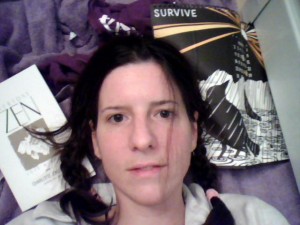 However, the idea of death in ME/CFS causes many people to become incensed. Because there are so many denialists, because ME/CFS deaths are rarely tracked (though studies by Leonard Jason and others have found that ME/CFS can be fatal), people can quarantine us to bathroom floors, and make us disappear in an ether of denial. Doctors, of all people, will likely confirm whatever our families or society wants to believe: that we’re nuts, that we’re fakers, that we suffer from a bizarre form of agoraphobia with organ failure. Dr. Bryon Hyde wrote, “Documented deaths in sporadic cases of M.E. are known, but it is my experience that treating physicians often become vitriolic when the deaths are attributed to M.E. by the families of the deceased. M.E. and CFS may be the only illnesses in history from which some physicians believe the patient is invulnerable to death.”
However, the idea of death in ME/CFS causes many people to become incensed. Because there are so many denialists, because ME/CFS deaths are rarely tracked (though studies by Leonard Jason and others have found that ME/CFS can be fatal), people can quarantine us to bathroom floors, and make us disappear in an ether of denial. Doctors, of all people, will likely confirm whatever our families or society wants to believe: that we’re nuts, that we’re fakers, that we suffer from a bizarre form of agoraphobia with organ failure. Dr. Bryon Hyde wrote, “Documented deaths in sporadic cases of M.E. are known, but it is my experience that treating physicians often become vitriolic when the deaths are attributed to M.E. by the families of the deceased. M.E. and CFS may be the only illnesses in history from which some physicians believe the patient is invulnerable to death.”
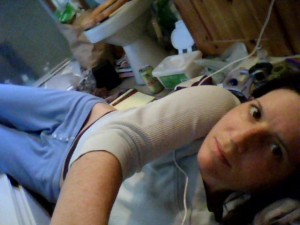 Comparing me to a prisoner, however, was not metaphorical. I spent every day for more than half of this year lying on my back for eight or ten hours or more in a dirty 4 1/2 x 9 foot bathroom on a pile of towels on the floor, as the 2 minute breaks when my aides put food beside my bed were so neurologically excruciating since I had become sensitive to all stimulation like Sophia Mirza that I took to crawling a few feet to the bathroom and closing the door. I also had to stay near the toilet as I was too ill to go back and forth and did not have enough help to assist me in toileting. Ants marched above me on the ceiling in grid patterns and then walked over my hands. I could rarely brush my teeth as I was too weak, and baths consisted of reaching for a fragrance free baby wipe a few times a week and wiping down some part of my body (which exhausted me and I had to do it slowly, resting, trying not to get too winded). This bathroom-cell where I was basically living wasn’t cleaned for over six months. Lying there with only one sliver of light from a small window, I also had to limit every bodily movement as even reaching for a pen would make me so short of breath. Moving a finger or a toe often took conscious thought, because I had to weigh the consequences, and how badly I would crash from that simple movement. On good days, I could write hand-written letters, or sketch in a sketch book, trying to stay as still as possible while only moving my hand. I used most of my precious energy to reach for supplement bottles at my bedside.
Comparing me to a prisoner, however, was not metaphorical. I spent every day for more than half of this year lying on my back for eight or ten hours or more in a dirty 4 1/2 x 9 foot bathroom on a pile of towels on the floor, as the 2 minute breaks when my aides put food beside my bed were so neurologically excruciating since I had become sensitive to all stimulation like Sophia Mirza that I took to crawling a few feet to the bathroom and closing the door. I also had to stay near the toilet as I was too ill to go back and forth and did not have enough help to assist me in toileting. Ants marched above me on the ceiling in grid patterns and then walked over my hands. I could rarely brush my teeth as I was too weak, and baths consisted of reaching for a fragrance free baby wipe a few times a week and wiping down some part of my body (which exhausted me and I had to do it slowly, resting, trying not to get too winded). This bathroom-cell where I was basically living wasn’t cleaned for over six months. Lying there with only one sliver of light from a small window, I also had to limit every bodily movement as even reaching for a pen would make me so short of breath. Moving a finger or a toe often took conscious thought, because I had to weigh the consequences, and how badly I would crash from that simple movement. On good days, I could write hand-written letters, or sketch in a sketch book, trying to stay as still as possible while only moving my hand. I used most of my precious energy to reach for supplement bottles at my bedside.
I could also sometimes use my little netbook resting on my lap or knees, which is how I took these pictures (with the embedded camera). In some of the images, you can see how still I’m trying to keep my head in its stony position on the pillow, as any change would result in a disequilibrium that would cause me to be extremely winded, black out even while lying down, and suffer precarious drops in blood pressure, extreme muscle weakness, and seizure-like episodes. Documenting my situation was physically risky, but I felt like it might be the only trace I left, the last images of my life on earth, and I thought it was important that others see how some ME/CFS and MCS patients die. I knew there were other patients in my position who could not even tolerate the light from a single window, who would die even more invisible than I was. As others experience in solitary confinement conditions, I also felt like I was losing my essence and soul, without the referential experience of connecting with others, and taking pictures in its own way helped me feel like I was still human, a feeling that grew increasingly elusive the longer I was in confinement.
Soon, I was gradually losing the ability to breathe on my own, the most terrifying thing I have ever experienced. I had to start using a ventilator to breathe and was facing certain death. I was in a hell most people cannot imagine, with every minute a struggle for my life, and a voice in my head just repeating the word “fight.” Dementia would have been a relief, but instead I was fully conscious every minute that I was dying of ME/CFS and nobody would help me. When I asked my Dad for money for a ventilator he told me I had mental problems. I was in some kind of respiratory failure.
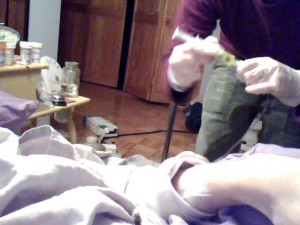 The anger I felt at being left to die this way is impossible to describe. It was a brutal, grueling, torturous death. My entire sense of love, humanity, and kindness evaporated, replaced by a gnawing feral terror. Having emotions was too dangerous because I was so short of breath that crying would have ended me. At night, for almost two months until I got a ventilator, my shortness of breath had turned into severe orthopnea. My throat was raw and straining from trying to get oxygen, and I awoke literally retching and heaving like a cat with a hairball in its throat and did that for hours, unable to get air, knowing I only had seconds or minutes left. I was too weak to cough but when I finally could, I began coughing up sputum from my lungs. I have never heard of a severe ME/CFS patient at this level surviving without a primary partner or family member stepping in to manage care and give some direct care. I knew if I survived it would be against impossible odds.
The anger I felt at being left to die this way is impossible to describe. It was a brutal, grueling, torturous death. My entire sense of love, humanity, and kindness evaporated, replaced by a gnawing feral terror. Having emotions was too dangerous because I was so short of breath that crying would have ended me. At night, for almost two months until I got a ventilator, my shortness of breath had turned into severe orthopnea. My throat was raw and straining from trying to get oxygen, and I awoke literally retching and heaving like a cat with a hairball in its throat and did that for hours, unable to get air, knowing I only had seconds or minutes left. I was too weak to cough but when I finally could, I began coughing up sputum from my lungs. I have never heard of a severe ME/CFS patient at this level surviving without a primary partner or family member stepping in to manage care and give some direct care. I knew if I survived it would be against impossible odds.
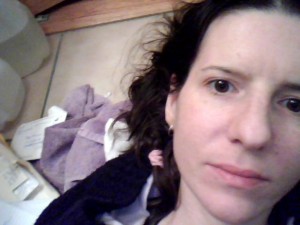 I had no options. Of course, I couldn’t have committed suicide without someone to help me, I was just too sick to get any tools that might work as I couldn’t even get downstairs on my stairlift, let alone drive to Maine to get a gun. To live that way, like Harry Harlow’s rhesus monkey isolation experiments, and not go mad took everything I had. If I lost focus for even a minute, I would be like those adrift sailors who drink seawater to quench their thirst, then hallucinate and step in with the sharks. I had failed a tilt table test and showed immune deficiencies in the hospital, and had Dr. Sarah Myhill’s mitochondrial testing in June which showed dramatic abnormalities, and yet nobody was going to save my life but me. I didn’t just feel unloved: I felt hated.
I had no options. Of course, I couldn’t have committed suicide without someone to help me, I was just too sick to get any tools that might work as I couldn’t even get downstairs on my stairlift, let alone drive to Maine to get a gun. To live that way, like Harry Harlow’s rhesus monkey isolation experiments, and not go mad took everything I had. If I lost focus for even a minute, I would be like those adrift sailors who drink seawater to quench their thirst, then hallucinate and step in with the sharks. I had failed a tilt table test and showed immune deficiencies in the hospital, and had Dr. Sarah Myhill’s mitochondrial testing in June which showed dramatic abnormalities, and yet nobody was going to save my life but me. I didn’t just feel unloved: I felt hated.
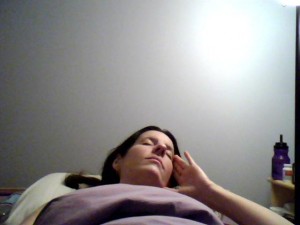 This level of neglect feels incredibly violent, and in many cases neglect is more lethal than physical violence. Just as the poor black men of Tuskagee were denied care as they withered away and died gruesome deaths (researchers were most interested in the cardiac elements of syphilis, which some syphilologists believe might have plagued Adolph Hitler, so it’s interesting how the methodology of sadistic medical experimentation in that study was lifted right from the Nazis, or how my own doctor had ignored me in the years before until I almost died from a heart infection secondary to ME/CFS), people with ME/CFS have waited decades for a single drug to be approved by the FDA for our condition.
This level of neglect feels incredibly violent, and in many cases neglect is more lethal than physical violence. Just as the poor black men of Tuskagee were denied care as they withered away and died gruesome deaths (researchers were most interested in the cardiac elements of syphilis, which some syphilologists believe might have plagued Adolph Hitler, so it’s interesting how the methodology of sadistic medical experimentation in that study was lifted right from the Nazis, or how my own doctor had ignored me in the years before until I almost died from a heart infection secondary to ME/CFS), people with ME/CFS have waited decades for a single drug to be approved by the FDA for our condition.
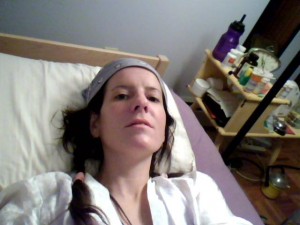 “We have no further interest in these patients until they die,” said one doctor working on the experiment. And here is the interesting part: while most historians want to relegate Tuskegee to a closed chapter of American racism, black officials worked on the study as well. The experiment took its name from a black university founded by Booker T. Washington, the Tuskegee Institute, and this Institute loaned its medical facilities for the study. Largely black institutions, and local black doctors and nurses took a prominent role. In fact, Tuskegee, like the life I have lived this year, was a great example of the Bystander Effect. It took forty years for anyone to blow the whistle and say the experiment was wrong. People followed each other’s cues instead of their own morality. It happens every day. It happened to me, lying on a bathroom floor. The people who did this were not monsters. They were the people I loved the most.
“We have no further interest in these patients until they die,” said one doctor working on the experiment. And here is the interesting part: while most historians want to relegate Tuskegee to a closed chapter of American racism, black officials worked on the study as well. The experiment took its name from a black university founded by Booker T. Washington, the Tuskegee Institute, and this Institute loaned its medical facilities for the study. Largely black institutions, and local black doctors and nurses took a prominent role. In fact, Tuskegee, like the life I have lived this year, was a great example of the Bystander Effect. It took forty years for anyone to blow the whistle and say the experiment was wrong. People followed each other’s cues instead of their own morality. It happens every day. It happened to me, lying on a bathroom floor. The people who did this were not monsters. They were the people I loved the most.






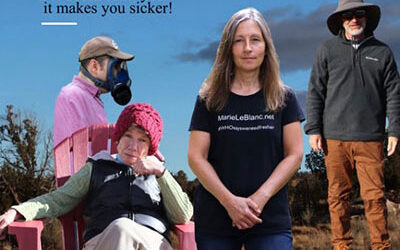
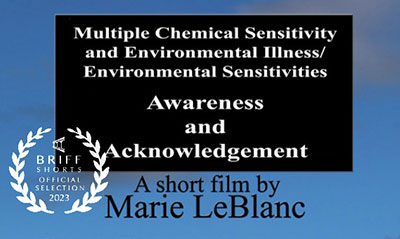

One Healer’s Lament
by
Karen Vrchota, M.D.
My heart has been stolen
By those whose story goes
“I was last in good health
The day before time froze”
Some un-nameable toxin,
Virus, or germ like thing,
Slipped in unannounced,
And slowly pulled a chain
That caused a chain reaction
Of events that cannot be named.
Blurred vision, sore throats,
Ice pick headaches, rusted joints
Air hunger, racing heart
Stopped digestion, bloated stomach
Bladder twinges, no sex drive
Hollow feeling, not myself
Muscle pains that excruciate,
Just as specialist is about to name it,
Vanishes. Reborn another place.
My heart reaches out
To those brave ones
Searching for truth
Behind their mystery illness.
Cleaning up their diets
Eating their greens and olive oil
Taking every recommended supplement,
Until they can’t.
Exercising, until they can’t
Taking pill after pill for sleep, for hormones, for infection,
Until they can’t.
Cleaning or building a clean home
Until they can’t.
Having spent every
Human and monetary resource,
They retire to their chair or bed
And try to find some comfort
But even breathwork is too much work
For these shallow breathers who
Feel a need to pay attention to breath.
A day may come
When they feel normal
And may play with their loved ones
For some small amount of time.
Until the fatigue comes creeping back.
Now they settle in for long days
And longer nights.
Still, this is their life.
In which the sun rises.
Curiosity evokes interest,
Triggering a sense of wonder,
And appreciation for what
Kindness comes their way.
There is life inside this
Labyrinth called CFS/ME
Life that is here now
In this breath and that.
My prayer goes out to those
Who struggle with each breath
Know we are here
Using every tool available
Looking under every scientific domain
With microscopes, stethoscopes, and computers
Looking into atoms, cells, and body systems
Into energy, medicines, and intent
Contemplating the complex
Layers that affect the “total load”
That affects your life.
We are here, more of us each day
Fighting for your lives
Just know
We are here.
Beautiful Karen, thank you so much for sharing that. It feels so good to have one’s struggle acknowledged and seen.
thanks you for the precise comparison and, as usual, excellent writing, peggy. found this late, but i’m glad i did. i’m so sorry; i share your pain. my children have dispossessed me completely because i couldn’t show up to their events most of the time. my doctors have dispossessed me because i have a history of mental illness. i have one person, my husband, and i feel pretty damned lucky! each one of us is enclosed and invisible within his or her small life. it just feels so unfair. thank you to karen for the poem, too. ~laura, cfs 15 yrs, (almost) 54. xoxoox
I think this (and similar missives e.g. Mike Dessin’s) damages, rather than helps, whatever point the author is trying to make.
I have CFS (although that diagnosis could be due to sloppy doctors who are too lazy to put effort into investigating a patient’s puzzling condition). I am quite a bit better now, however, for many years I was very unwell and without support from family and friends. However, even at my very worst I was a relative ‘picture of health’ in comparison to Peggy’s description of her condition.
My point:
Even though I should be able to comprehend and empathize with this story I find it literally unbelievable.
My comment will probably be roundly condemned, but if someone who ought to be able to believe and empathize has this reaction, I can’t begin to imagine what reaction others, who are far removed from the reality of life with a chronic and debilitating condition, have.
The facts seem to beggar belief.
(Rather than wade back through the missive looking for exact quotes I’ll rely on my (bad) memory of the details that I read, because that’s what other readers will do as they reflect on the story.)
Alone, with barely enough energy even to turn over in bed, can crawl to bathroom only to collapse on floor etc.
No one helps, so presumably no food is available, no clothes get washed etc.
I just don’t get how a person that sick didn’t die (from starvation or thirst or poor hygiene etc.).
This situation seems to have gone on for several years.
I’m sorry, but for this reader something about the telling of this woman’s harrowing experience of a dreadful medical condition has me unsure what to think. Does she have a too vivid imagination, is her condition psychosomatic … ?
I’m not disbelieving that Peggy is dreadfully unwell.
It’s the story I grapple with.
Hi Emily, Thank you for writing! I don’t think you will be condemned for sharing your honest opinion here. You did it in a way that was not personally insulting or attacking. It sounds respectful but questioning. And you are right, if someone who should have empathy and understanding cannot understand this story, then maybe those with the most severe cases need to think about how they tell the story. Sometimes emphasizing the horrors over and over can cause others to glaze over. Sometimes facts shared side by side seem to contradict each other or lessen the others’ impact. The story is certainly compelling and needs to be told, but maybe told in a different way. I hope those with severe cases do learn how to communicate their experiences in a way that allows many people to care about their situation and be motivated to take action to help. Language is very powerful. People with illness speak a different language than those in health. People with chemical sensitivity speak a different language. So the trick is to learn how to speak in your intended audience’s language – not your own. That is a big challenge. I personally do believe Mike Dessin’s and Peggy Munson’s stories. But I understand what you are saying and I think your comment could be very helpful for them and others, in understanding how other people can misinterpret their words. All my best, Julie
You say you find the story hard to believe even though you have the illness or some of the illness – I found it hard to read BUT I believe it. I lay in a house for 14 years then Ive become so allergic to formaldehyde I cant cope with any floor coverings or any paint on the walls no matter how old SO NOW Ive been laying (also like a prisoner) in a car for not 6 months as this lady has but 4 years! I can barely get out of the car because of my allergies to trees and grass. Im angry too. I havent been to see an EI doctor for a long time as they said wed come to an impass but they begged me to contact my family to see if they could house me. I only asked them if I could park my car in their yard so I could have access to food and be a bit safer but they refused. So Im out in the open, a woman on my own, barely able to move. SOME OF THE REASONS I COULDNT MOVE is I have addisons disease and hypothyroidism. Undiagnosed and untreated. No cortisol = death. I cut my hair off and sent it to a lab. When I crawled into the doctor with these results they could no longer ignore me. I have treatment for both of these but am still in the car. My liver, pancreas, heart, lungs are all struggling. My point is if we are left barely able to move and barely able to feed ourselves ( a story that doesnt seem to be real to some) we dont get better we get worse. My copper, lead, cadmium, ca, levels are off the chart – another reason for SEVERE pain and fatigue. Believe it – left alone and uncared for our organs shut down. Its just a very slow death AND INCREDIBLY PAINFUL – in all ways. I dont think Im going to last much longer. Then I see things on here like Gupta. And just cannot imagine how my brain shut down all my organs. The only people that I know (which isnt many) that got better are those that managed to get less toxic (not always so easy when youre allergic to everything). I dont know how to express what is happening to me that doesnt sound angry. There is no way a healthy person could even IMAGINE the PAIN! Ive also not only been threatened as other members have of being taken to a mental ward – I have been. Not once, not twice but three times. I was holding 2 doctors letters stating my condition was genuine and an immune disorder. We know what hospital visits do to people like us. Im not sure I ever have a chance of recovering. I dont think I can wake up my adrenals, thyroid, liver, pancreas, heart, lungs and get all this metal out.
I dont think I can wake up my adrenals, thyroid, liver, pancreas, heart, lungs and get all this metal out.
from a car by myself. Since my family denied me any help and my partner I dragged myself into Queensland health. They also refused me any help. So believe it. People arent interested in sick people. I cant make them any money anymore like I used to so… bad luck for me. I must have been really evil in my last life.
I havent been well my whole life but crashed at 32 with 3 bad viruses. I had my 50th birthday in the car by myself, no phone calls, no party, I dont think I even had dinner. I live mostly off vitamins/minerals/supplements. I also have trouble getting a bath and forget underwear. I rarely change my clothes – its just too painful. Hitting menopause when you’re unwell like this was a nightmare – for me anyway. I lost my voice, head spins around like Im being exorcised, another reason I cant move and the pain. No cortisol, thyroid hormone, progesterone, testerone, estrogen. It was all there but the doctors never told me. Peggy, just make sure everything is checked and give yourself the best chance to get off the floor.
My husband has late stage lyme and fibromyalgia for 8 years. No one understands the weakness and pain. I am appalled that families abandon their loved ones in this condition. Selfishness, lack of love reign.maybe its because we have watched so much violence on the telly. The lack of compassion is disgusting. Look into a book by Dr. Sherry Rogers Detoxify or die. Has a great protocol for chemical sensitivities. She is an allopathic doctor but practices alternative medicine also.
Peggy Munson had trouble posting a comment here but she asked me to post this in reply to Emily’s comment from 2/1/11.
Peggy Munson
I wanted to respond to Emily’s comment above.
Emily, if you read my blog, you will see that I was infected with life-threatening secondary infections in the years before I was left to die like garbage on a bathroom floor (and in the corner of my bedroom), and these significantly contributed to my decline (and aggressive treatments for these and other treatments contributed to why I lived). I also feel it is possible that I picked up another infection in the hospital, but don’t know: all I know is that my tests showed signs that I was in septic shock, among other things, when I was dying (911 paramedics had done EKGs at my house). Judy Mikovitz, Dr. Martin Lerner, and other prominent ME/CFS people have found that secondary infections are common in XMRV/ME/CFS, as they are in AIDS. In some cases, like mine, these lead to rapid decompensation and death, and death from septic shock usually results from respiratory failure and results in long-term cognitive and other problems, as I have had. In the Incline Village years of ME/CFS, Dr. Cheney testified that he had cases of an HIV-negative, AIDS-like illness in which secondary infections leading to death occurred.
The only way I survived was by staying perfectly still on the bathroom floor (or in bed a few feet away, when I was there at night), unmoving, as any movement would leave me heaving for breath, blacking out, losing consciousness, or seizuring. Bathing myself with baby wipes every few days as I described left me in a terrifying state of respiratory distress, and had to be done while lying as flat as possible in the same position I stayed in all day, and quickly wiping down a part of my body. I could not crawl to my closet across the room or crawl to my bedroom door: I was heaving and choking/gasping for breath and blacking out from the tiniest motion. As hard as it is to believe, just reaching in any direction was so life-threatening that I spent all day just crammed in that narrow bathroom, with everything I needed by my side or beside my bed. I can’t explain why I didn’t die from lack of hygiene — I could rarely brush my teeth, could not turn over to prevent bedsores (and spent all day every day lying on towels on a bathroom floor), could not take a bath, could not wash my hair. A few times, I managed to plunge the toilet that was right next to me when it clogged, but I barely survived this — the exertion, that is, and had to do it in bursts. I didn’t include these graphic details or many other minor details because this was a short piece. For example, I did have clean laundry, it was just almost impossible to change my clothes due to the exertion — but the small amount of help I did have managed to wash one load every few weeks and put the clean clothes by the bathroom door when dropping off my food, so I could carefully and quickly grab something from the basket when crawling from my bed to the bathroom floor. I changed so rarely that there was very little laundry, and the sheets on my bed were never washed that whole time, to my recollection. There were ants everywhere as it started to warm up, crawling on me and the ceilings and walls, but they were more friends than enemies — they didn’t bite me, didn’t cause more disease.
There is no way it was possible for me to survive what I did, honestly — I figured I would not wake up any of the days I did, and it was a miracle I did — and everyone involved in helping me was pretty much one hundred percent sure I would die any day. I didn’t due to my enormous fight, a lot of interventions, staying still as I mentioned, some people fighting for my life, and some luck (which I put in to express that anyone who does die from this illness is certainly not without fight, attempts to heal, etc., as I know Sophia Mirza and others who have not survived were true warriors). I also used tons of supplements and ultimately got injectible antibiotics, a ventilator, and other treatments that saved my life. I am still very sick two years later, and very very impaired and physically injured from what I went through, but the treatments I did helped pull me out to some degree. It’s unlikely I’ll ever recover to even my previously poor state of health.
Your disbelief surely comes from never having studied the cases of the sickest patients, such as Sophia Mirza, whose mother has provided extensive documentation of her illness online. She died the way I was dying — and the main reason I lived and she died is probably that I could still ingest foods whereas her food sensitivities left her unable to do so and this additionally weakened her. Sophia, unlike me, had extraordinary care in the form of her mother Criona and other assistance Criona enlisted. But they had to battle a sick culture as Sophia fought this terrible illness.
As for Mike Dessin, I encourage you to get to know more about him before passing such judgments. He has done a great deal for our community, and it is a true shame that people like you discourage people like Mike — who have valid things to offer us — from speaking out. Mike is someone I also know and fully believe. I have also read extensively about his treatment and understand why it makes theoretical sense.
While I respect your right to an opinion, I actually do think your tone is insulting to those of us who have been in these depths, and it’s why I have not spoken up more in more venues about the horrors I went through. I’m still dealing with significant trauma and physical injury and still fighting to recover, and like any patient prefer to seek out positive things and support. It was very hard for me to tell this story, but I felt it was necessary.
My family, like you, simply refuses to believe what happened, even though witnesses have written them letters recounting the factual events I described above, and many people begged them not to let me die as I was dying, including at least one health care provider who told them clearly I WAS dying and they MUST care for me.
Just because you are one of the fortunate “CFS” patients who has not been to these depths, you should not presume to understand this illness at its worst (and ME/CFS does not really resemble MCS at all — some of us are simply unlucky enough to have both illnesses). I used to be like you. I was much less sick in the early years of illness, and could never have imaged it could get this bad. It was only due to bad luck and lack of care that it did. I suggest you read some of the stories at the 25 ME Group website if you want to see other examples of patients who are as sick as me or Mike. As you said yourself, your condition may also have been wrongly diagnosed, a result of doctors not doing proper investigation. It may be that if you took tests I have had extreme abnormalities on (i.e. mitochondrial testing, impedance cardiology testing for diastolic dysfunction, tilt table testing for dysautonomia, pathogen testing, etc.) you might find you actually do have a different illness, and maybe one more treatable — I’m suggesting this as I agree with Debra that the right stones are not always turned over, and having a treatable condition (or even treatable pieces, like the secondary infections I had), can lead to a positive outcome, which I wish for for all of us.
I have known other patients who were very close to death as I have been, but none at that level who were as lacking in adequate or personalized care, and that has been the biggest threat to my survival. It may be hard to believe that such callousness exists, but if you do consider the statistics of New Orleans/Katrina (that half who died were 75 or older), it might become clear that abandoning the sick, frail, and weak is a major part of our culture. It’s pathological, but it’s easy for people to rationalize it or get away with it. I heard newscasters post-Katrina trying to blame the elderly for not escaping, saying they were stubborn, set in their ways, etc. There was no analysis of the fact that some people could not walk or crawl or swim or drive or run away.
Thanks so much to everyone for the supportive and kind words as well.
Peace,
Peggy
Hello,
I have been talking to patients for over 25 years. I totally believe that Peggy’s circumstances are real. Few people have caretakers. Many people have not a family member or friend ready to help. Lastly, reaching out to neighbors is only an option if one is somewhat mobile and knows people. In many areas, we have lost the neighborhood spirit which is a different subject entirely.
I hear from people who have managed to get off the floor. For those who do not, we may never hear from them again.
When I talk to people, I can offer ideas, I can just listen to them, but most of the time, I cannot do a thing to help. AND I always hope they choose the light…make a choice to live, but I have no control of outcomes.
The number of abused women is high, too. They stay, horribly ill because they cannot take care of themselves. At least the abuser may buy food? Wash a load of clothes? Fix a toilet?
We are 3 generations into this illness….I think finally there is some movement by people who have support to speak for those who don’t. I am encouraged, but I am also comfy and not alone. PLEASE YA’LL take care.
how do i get your blog by e.mail please.
i have m.e. lot health problems
mark
There’s definately a lot to know about this topic.
I love all of the points you’ve made.